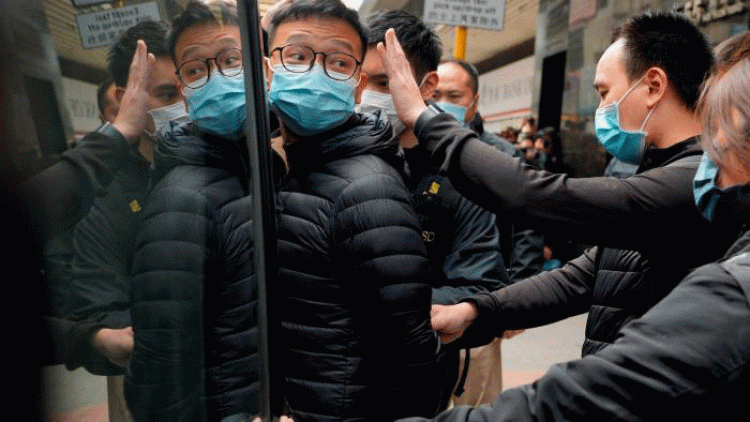China is relentless in its crackdown on Hong Kong's independent news media. Stand News, an online news publication operating in the semi-autonomous city of Hong Kong, has become the latest victim of the draconian National Security Law. On Wednesday, 29 December, Hong Kong Police raided the office premises of the pro-democracy news website and arrested some of its current and former employees on suspicion of “conspiracy to publish seditious publications”.
Stand News had been in operation since 2014 and had been severely critical of the Chinese Communist Party and its policies, especially the National Security Law which was enacted in 2020.
The Hong Kong Police raided the premises on Wednesday morning and arrested six official staff members namely the former chief editor Chung Pui-kuen, acting chief editor Patrick Lam, pop star-turned-activist and board member Denise Ho, board members Margaret Ng, Christine Fang and Chow Tat-chi. Police also briefly detained one of the deputy editors, Ronson Chan for questioning and was released later. The company later posted from its official handle on Facebook that the police had seized documents, computers and other relevant journalistic materials and that the company was cooperating with the police in the investigation.
Also read| Pakistan Hindu Council invites pilgrims to encourage 'faith tourism'
Stand News was one of the champions of free speech and advocated for the pro-democracy movement in the city. The website, as per media reports, had been targeted over the years by the authorities for promoting pro-democracy content. Only earlier this month, Hong Kong’s security secretary Chris Tang termed the website’s reporting of prison conditions as “smearing and demonising.”
As per media reports, Chief Secretary of police John Lee has justified the raid on the website. He said that the Hong Kong security authorities will not tolerate any threats to the national security of the city. He added that news organisations must not allow their platforms to be misused to publish sensitive contents which threaten security of the city.
The National Security Law, officially the Law of the People's Republic of China on Safeguarding National Security in the Hong Kong Special Administrative Region (HKSAR), is an act of legislation which was passed by the Chinese government’s Standing Committee of the National People's Congress on 30 June 2020 and was enacted the very same day.
This legislation was/is seen as a major blow to Hong Kong’s political autonomy as it is claimed that its legislative framework subverts the city’s constitution, the Basic Law. Activists argue that this Law provides a backdoor entry to the criminalization of sedition, which is not permitted under the Basic Law.
Also read| UK reports record rise with more than 180,000 daily Covid cases
Especially concerning to the human rights activists is the criminalization of acts/attempts of secession, subversion, terrorism and collusion with “foreign forces” which they believe will be interpreted unreservedly by the police to crack down on the critics of the communist regime in the mainland.
Earlier this year, the Law was cited by the police to crack down on the most popular tabloid in Hong Kong, Apple daily, when they froze their monetary assets and seized journalistic materials. The tabloid was forced to pull the shutter down and its founder, entrepreneur and pro-democracy activist Jimmy Lai, was the first high-profile figure to be charged under the law.


















